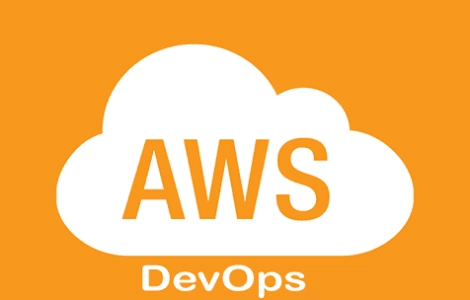
What is DevOps (and Why AWS is the Perfect Partner)?
DevOps is more than just a set of tools; it’s a cultural shift that emphasizes collaboration, communication, integration, and automation between development and operations teams. Its goal is to shorten the system development life cycle and provide continuous delivery with high software quality.
Why AWS for DevOps?
AWS, as the world’s leading cloud provider, offers a vast ecosystem of services that perfectly align with and facilitate DevOps principles. Instead of managing complex infrastructure manually, AWS provides managed services that automate many operational tasks, allowing teams to focus on delivering value.
This integration leads to:
Faster Release Cycles: Automate builds, tests, and deployments.
Increased Reliability: Consistent environments and automated testing reduce errors.
Scalability & Flexibility: Easily scale infrastructure up or down as needed.
Cost Efficiency: Pay-as-you-go models and optimized resource utilization.
Improved Collaboration: Shared tools and simplified workflows across teams.
[Image Suggestion: A simple Venn diagram showing “Development” and “Operations” overlapping, with “DevOps” in the intersection. Maybe another small diagram showing AWS services encircling the DevOps loop.]
The Core Pillars of AWS DevOps
AWS provides a comprehensive suite of services that support every stage of the DevOps lifecycle. Let’s look at the key pillars:
Continuous Integration (CI):
What it is: Developers frequently merge their code changes into a central repository, where automated builds and tests are run. This helps detect and fix integration errors early.
Key AWS Services:
AWS CodeCommit: A fully-managed source control service that hosts secure Git-based repositories.
AWS CodeBuild: A fully-managed continuous integration service that compiles source code, runs tests, and produces software packages.
Continuous Delivery (CD) & Continuous Deployment (CD):
What it is: CI’s logical next step. Continuous Delivery ensures that code changes are automatically prepared for release to production. Continuous Deployment takes it a step further by automatically deploying every change that passes all tests to production.
Key AWS Services:
AWS CodePipeline: An end-to-end continuous delivery service that automates release pipelines for fast and reliable application and infrastructure updates.
AWS CodeDeploy: Automates code deployments to any instance, including Amazon EC2 instances and on-premises servers.
AWS Elastic Beanstalk: An easy-to-use service for deploying and scaling web applications and services.
Infrastructure as Code (IaC):
What it is: Managing and provisioning infrastructure through code instead of manual processes. This ensures consistency, repeatability, and version control.
Key AWS Services:
AWS CloudFormation: Allows you to model, provision, and manage AWS and third-party resources using templates.
AWS CDK (Cloud Development Kit): Lets you define cloud infrastructure using familiar programming languages.
Monitoring & Logging:
What it is: Continuously observing application and infrastructure performance, collecting logs, and setting up alerts to quickly identify and resolve issues.
Key AWS Services:
Amazon CloudWatch: Monitors AWS resources and applications running on AWS, collecting and tracking metrics, collecting and monitoring log files, and setting alarms.
AWS CloudTrail: Records AWS API calls for your account and delivers log files to an Amazon S3 bucket, enabling security analysis, resource change tracking, and compliance auditing.
Microservices & Containerization:
What it is: Architecting applications as a collection of loosely coupled services, often packaged in containers, for greater agility and scalability.
Key AWS Services:
Amazon ECS (Elastic Container Service) & Amazon EKS (Elastic Kubernetes Service): Fully managed container orchestration services.
AWS Fargate: Serverless compute engine for containers, removing the need to manage servers or clusters.
AWS Lambda: Serverless compute service that runs code in response to events.
Benefits of Adopting AWS DevOps for Your Business
Embracing AWS DevOps principles can transform your software delivery process:
Accelerated Time to Market: Get new features and products to your customers faster.
Improved Quality & Stability: Automated testing and consistent environments reduce bugs and downtime.
Enhanced Security: Integrate security checks throughout the pipeline (SecDevOps).
Cost Optimization: Efficient resource provisioning and reduced manual effort lead to cost savings.
Scalability for Growth: Easily handle increasing user loads or data volumes, crucial for growing businesses in Guntur.
Innovation at Scale: Free up your teams to focus on what truly matters: building great products.
